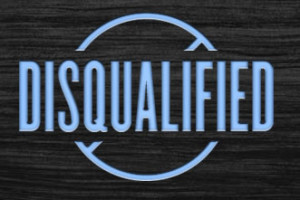 The Fifth Circuit recently denied en banc review — by a “photo finish” 8-7 vote — of Passmore v. Baylor Health System, which concluded that Texas’s expert report requirements for medical malpractice cases were procedural and did not apply in federal court under the Erie doctrine. A dissent argued that this vote was inconsistent with the recent en banc opinion in Flagg v. Stryker Corp. that analyzed a comparable requirement of Louisiana law.
The Fifth Circuit recently denied en banc review — by a “photo finish” 8-7 vote — of Passmore v. Baylor Health System, which concluded that Texas’s expert report requirements for medical malpractice cases were procedural and did not apply in federal court under the Erie doctrine. A dissent argued that this vote was inconsistent with the recent en banc opinion in Flagg v. Stryker Corp. that analyzed a comparable requirement of Louisiana law.
Monthly Archives: August 2016
 Jefferson v. Certain Underwriters at Lloyds visited the intricate rules surrounding appellate review of remand orders. Here: “Dismissals of non-diverse parties allow for the exercise of diversity jurisdiction, and the propriety of remand in a properly removed case is judged on the basis of the district court’s jurisdiction over the claims remaining at the time of remand, not the time of removal.” Accordingly, “the district court had no discretion to remand this case if the remaining parties were diverse at the time of removal.” No. 15-30211 (Aug. 15, 2016, unpublished).
Jefferson v. Certain Underwriters at Lloyds visited the intricate rules surrounding appellate review of remand orders. Here: “Dismissals of non-diverse parties allow for the exercise of diversity jurisdiction, and the propriety of remand in a properly removed case is judged on the basis of the district court’s jurisdiction over the claims remaining at the time of remand, not the time of removal.” Accordingly, “the district court had no discretion to remand this case if the remaining parties were diverse at the time of removal.” No. 15-30211 (Aug. 15, 2016, unpublished).
 Jones, the sole shareholder of a bankrupt business, moved to intervene in a lawsuit between the trustee for the business and Bank of America — two weeks after the parties had filed a stipulation of dismissal that the district court accepted. The district court denied Jones’s motion; he appealed, and the Fifth Circuit affirmed. As to the stipulation of dismissal, the appeal was untimely; as to the intervention, while Jones’s late arrival did not bar his motion outright, it heavily influenced the relevant factors against him. Sommers v. Bank of America, No. 15-20775 (Aug. 26, 2016).
Jones, the sole shareholder of a bankrupt business, moved to intervene in a lawsuit between the trustee for the business and Bank of America — two weeks after the parties had filed a stipulation of dismissal that the district court accepted. The district court denied Jones’s motion; he appealed, and the Fifth Circuit affirmed. As to the stipulation of dismissal, the appeal was untimely; as to the intervention, while Jones’s late arrival did not bar his motion outright, it heavily influenced the relevant factors against him. Sommers v. Bank of America, No. 15-20775 (Aug. 26, 2016).
 Cotton v. Certain Underwriters at Lloyds, a dispute about payment for wind damage from Hurricane Isaac, presented an issue about who was entitled to sue. The Fifth Circuit reminded that “‘Standing’ . . . is a label used to describe different things in the law.” One use is “whether a party has a right to sue under a contr
Cotton v. Certain Underwriters at Lloyds, a dispute about payment for wind damage from Hurricane Isaac, presented an issue about who was entitled to sue. The Fifth Circuit reminded that “‘Standing’ . . . is a label used to describe different things in the law.” One use is “whether a party has a right to sue under a contr act.” That use, which presents “an issue of ‘contract interpretation,'” is “entirely distinct from ‘standing’ for purposes of Article III” and its jurisdictional consequences. No. 15-31005 (Aug. 1, 2016).
act.” That use, which presents “an issue of ‘contract interpretation,'” is “entirely distinct from ‘standing’ for purposes of Article III” and its jurisdictional consequences. No. 15-31005 (Aug. 1, 2016).
 Continuing a theme in cases involving attorney liability (most notably the recent Stanford-related opinion in Troice v. Proskauer Rose, 816 F.3d 341 (5th Cir. 2015)), the Fifth Circuit affirmed summary judgment for the law firm involved in a disputed foreclosure: “Under Texas law, the doctrine of qualified immunity has ‘long authorized attorneys to practice their profession, to advise their clients and interpose any defense or supposed defense, without making themselves liable for damages.” Lassberg v. Bank of America, No. 15-40196 (Aug. 23, 2016, unpublished).
Continuing a theme in cases involving attorney liability (most notably the recent Stanford-related opinion in Troice v. Proskauer Rose, 816 F.3d 341 (5th Cir. 2015)), the Fifth Circuit affirmed summary judgment for the law firm involved in a disputed foreclosure: “Under Texas law, the doctrine of qualified immunity has ‘long authorized attorneys to practice their profession, to advise their clients and interpose any defense or supposed defense, without making themselves liable for damages.” Lassberg v. Bank of America, No. 15-40196 (Aug. 23, 2016, unpublished).
 For some time, the Golf Channel and the receiver for Allen Stanford’s affairs have disputed whether the Channel gave value in exchange for the purchase of roughly $6 million in advertising. The Channel contended that it did by giving exactly the advertising that Stanford ordered; the receiver disagreed, noting that Stanford was running a valueless Ponzi scheme. On certification from the Fifth Circuit, the Texas Supreme Court sided with the Channel, holding that under the Texas version of the Uniform Fraudulent Transfer Act, the Channel gave value from an objective perspective. The Fifth Circuit accepted that holding as to this case, but noted: “The Supreme Court of Texas’s answer interprets the concept of ‘value’ under TUFTA differently than we have understood ‘value’ under other states’ fraudulent transfer laws and under section 548(c) [of] the Bankruptcy Code.” Janvey v. Golf Channel, No. 13-11305 (Aug. 22, 2016).
For some time, the Golf Channel and the receiver for Allen Stanford’s affairs have disputed whether the Channel gave value in exchange for the purchase of roughly $6 million in advertising. The Channel contended that it did by giving exactly the advertising that Stanford ordered; the receiver disagreed, noting that Stanford was running a valueless Ponzi scheme. On certification from the Fifth Circuit, the Texas Supreme Court sided with the Channel, holding that under the Texas version of the Uniform Fraudulent Transfer Act, the Channel gave value from an objective perspective. The Fifth Circuit accepted that holding as to this case, but noted: “The Supreme Court of Texas’s answer interprets the concept of ‘value’ under TUFTA differently than we have understood ‘value’ under other states’ fraudulent transfer laws and under section 548(c) [of] the Bankruptcy Code.” Janvey v. Golf Channel, No. 13-11305 (Aug. 22, 2016).
 Whitlock, a truck driver, sued his employer for racial discrimination, alleging that the stated reason for discharge (running a red light at a loading dock) was pretextual. As to discriminatory discharge, “[t]he complaint fails to specify the [comparable] white employees’ work violations” and “fails to allege the white employees’ jobs” with the employer. As to hostile work environment, the complaint alleged that the workplace “was difficult [to] endure,” “caused stress related problems,” and that “[a] white employee was allowed to ride around in a pickup ruck without doing his job but given credit for the work done by African-American employees. The Fifth Circuit affirmed dismissal on the pleadings; this case illustrates a straightforward application of Rule 12 where the substantive law clearly dictates a certain level of detail about the claim. Whitlock v. Lazer Spot, Inc., No. 16-30139 (Aug. 15, 2016, unpublished).
Whitlock, a truck driver, sued his employer for racial discrimination, alleging that the stated reason for discharge (running a red light at a loading dock) was pretextual. As to discriminatory discharge, “[t]he complaint fails to specify the [comparable] white employees’ work violations” and “fails to allege the white employees’ jobs” with the employer. As to hostile work environment, the complaint alleged that the workplace “was difficult [to] endure,” “caused stress related problems,” and that “[a] white employee was allowed to ride around in a pickup ruck without doing his job but given credit for the work done by African-American employees. The Fifth Circuit affirmed dismissal on the pleadings; this case illustrates a straightforward application of Rule 12 where the substantive law clearly dictates a certain level of detail about the claim. Whitlock v. Lazer Spot, Inc., No. 16-30139 (Aug. 15, 2016, unpublished).
 In Wilson v. Navika Capital Group LLC, the appellants filed this notice of appeal from adverse rulings in an FLSA dispute. The Fifth Circuit found that the reference in the notice to “Plaintiffs Wilson et al.” did not satisfy the requirements of Fed. R. Civ. P. 3 in light of the entire record — a case in which “the plaintiffs .. were in ‘continual flux’ at the district court, as various groups of plaintiffs were dismissed at different times.” The notice was sufficient as to two plaintiffs specifically named in named in the style of the case as shown on the notice, as Rule 3 says — “The notice of appeal must: specify the party or parties taking the appeal by naming each one in the caption or body of the notice.” No. 15-20204 (Aug. 8, 2016, unpublished).
In Wilson v. Navika Capital Group LLC, the appellants filed this notice of appeal from adverse rulings in an FLSA dispute. The Fifth Circuit found that the reference in the notice to “Plaintiffs Wilson et al.” did not satisfy the requirements of Fed. R. Civ. P. 3 in light of the entire record — a case in which “the plaintiffs .. were in ‘continual flux’ at the district court, as various groups of plaintiffs were dismissed at different times.” The notice was sufficient as to two plaintiffs specifically named in named in the style of the case as shown on the notice, as Rule 3 says — “The notice of appeal must: specify the party or parties taking the appeal by naming each one in the caption or body of the notice.” No. 15-20204 (Aug. 8, 2016, unpublished).
 Icy litigation about the “sno-ball” market in New Orleans led to a series of sanctions motions, requiring the Fifth Circuit to evaluate the potential chilling effect of sanctions. (The opinion cites this informative article about the technical development of shaved-ice treats.) The Court held:
Icy litigation about the “sno-ball” market in New Orleans led to a series of sanctions motions, requiring the Fifth Circuit to evaluate the potential chilling effect of sanctions. (The opinion cites this informative article about the technical development of shaved-ice treats.) The Court held:
- “If SnoWizard made material misrepresentations about the validity of various trademarks and patents [in other litigation], Southern Snow should have introduced those claims during its litigation over the validity of those trademarks and patents during the trial”;
- Alleged “obstructive acts” during those proceedings “are not criminal conduct” and thus “cannot act as a predicate offense for a civil-RICO claim”;
- Dismissal without prejudice is not a sufficient predicate for a later malicious prosecution claim; and
- Conversely, the various sanctions and damages theories advanced were “no so obviously foreclosed by precedent as to make them legally indefensible.”
 The Court concluded: “”The parties could have shaved down the overwhelming costs in time, expense and scarce judicial resources that this litigation has consumed it they could have abandoned their unrelenting desire to crush the opposition.” Snow Ingredients, Inc. v. Snowizard, Inc., No. 15-30393 (Aug. 15, 2016). (The opinion echoes the similiarly frosty relations between the parties in the recent case of Yumilicious v. Barrie, involving a dispute about frozen yogurt franchises.)
The Court concluded: “”The parties could have shaved down the overwhelming costs in time, expense and scarce judicial resources that this litigation has consumed it they could have abandoned their unrelenting desire to crush the opposition.” Snow Ingredients, Inc. v. Snowizard, Inc., No. 15-30393 (Aug. 15, 2016). (The opinion echoes the similiarly frosty relations between the parties in the recent case of Yumilicious v. Barrie, involving a dispute about frozen yogurt franchises.)
 OTM, the owner of two boats, alleged a poor repair job by Diversified. The district court granted summary judgment for the defendant and the Fifth Circuit reversed, observing: “OTM concedes it has not attempted to prove the ‘precise cause’ of the engines’ malfunction; instead, it maintains it presented sufficient evidence to create the requisite
OTM, the owner of two boats, alleged a poor repair job by Diversified. The district court granted summary judgment for the defendant and the Fifth Circuit reversed, observing: “OTM concedes it has not attempted to prove the ‘precise cause’ of the engines’ malfunction; instead, it maintains it presented sufficient evidence to create the requisite
genuine dispute of material fact for whether the claimed substandard overhauls by Diversified caused the engines’ breakdown. . . . [A]t this stage, OTM is not required to prove exactly which part failed, or disprove that ‘the vessels’ other deteriorating parts or operator error’ was not the cause of the vessels’ breakdown . . . . ” Operaciones Tecnicas Marinas, SAS v. Diversified Marine Services, LLC, No. 15-30932 (Aug. 5, 2016, unpublished). The opinion illustrates the interaction between the requirements of Rule 56 and the requirement of Daubert case law that an expert adequately exclude alternative causes.
 Thomas v. Chevron USA involved a suit for damages after a pirate attack off the shore of Nigeria. The Fifth Circuit reversed the districr court’s denial of leave to amend; on the key issue of duty, the Court observed: “Thomas alleged that Chevron knew about of the real risk of piracy in the region and of the specific threats received by the [ship]. He alleged that despite its knowledge, Chevron requested that the [ship] take an unaccompanied support trip that would pass by the source of the recent threats. Finally, he alleged that Chevron broadcast his route information and locations over easily-accessible VHF radios, through which they could be heard by pirates known to be in the area. These allegations are sufficient to suggest that the harm suffered by Thomas was reasonably foreseeable to Chevron and that Chevron consequently owed him a duty not to subject him to the conditions he encountered . . . .” No. 15-20490 (Aug. 11, 2016).
Thomas v. Chevron USA involved a suit for damages after a pirate attack off the shore of Nigeria. The Fifth Circuit reversed the districr court’s denial of leave to amend; on the key issue of duty, the Court observed: “Thomas alleged that Chevron knew about of the real risk of piracy in the region and of the specific threats received by the [ship]. He alleged that despite its knowledge, Chevron requested that the [ship] take an unaccompanied support trip that would pass by the source of the recent threats. Finally, he alleged that Chevron broadcast his route information and locations over easily-accessible VHF radios, through which they could be heard by pirates known to be in the area. These allegations are sufficient to suggest that the harm suffered by Thomas was reasonably foreseeable to Chevron and that Chevron consequently owed him a duty not to subject him to the conditions he encountered . . . .” No. 15-20490 (Aug. 11, 2016).
 The losing party in an arbitration opposed confirmation on, among other grounds, a challenge to the disclosures made by JAMS. Specifically, the party complained that JAMS had not disclosed a relationship between the other side and another JAMS-affiliated arbitrator. This complaint did not meet the demanding standard for a disqualifying bias: “Here, the Arbitrator explicitly stated that he and Bates had never discussed this arbitration and that Bates did not know the Arbitrator was even at this hearing. In fact, there is no evidence that Bates had any relationship with the Arbitrator other than the fact that both serve as JAMS arbitrators. Most importantly, Cooper points to nothing in the record that would indicate that the Arbitrator had any prejudice against him.” Cooper v. WestEmd Capital Management LLC, No. 15-31068 (Aug. 9, 2016).
The losing party in an arbitration opposed confirmation on, among other grounds, a challenge to the disclosures made by JAMS. Specifically, the party complained that JAMS had not disclosed a relationship between the other side and another JAMS-affiliated arbitrator. This complaint did not meet the demanding standard for a disqualifying bias: “Here, the Arbitrator explicitly stated that he and Bates had never discussed this arbitration and that Bates did not know the Arbitrator was even at this hearing. In fact, there is no evidence that Bates had any relationship with the Arbitrator other than the fact that both serve as JAMS arbitrators. Most importantly, Cooper points to nothing in the record that would indicate that the Arbitrator had any prejudice against him.” Cooper v. WestEmd Capital Management LLC, No. 15-31068 (Aug. 9, 2016).
 In a case about the scope of a “drilling rig” exclusion in an insurance policy, a party asked the Fifth Circuit to not follow a previous unpublished opinion because it was not binding precedent. The Court disagreed, stating: “While [Appellant] is correct, we find Cash’s reasoning compelling,” and then applying the precedents cited by the opinion. Nonbinding precedent has persuasive power. Richard v. Dolphin Drilling Ltd., No. 16-30003 (Aug. 1, 2016).
In a case about the scope of a “drilling rig” exclusion in an insurance policy, a party asked the Fifth Circuit to not follow a previous unpublished opinion because it was not binding precedent. The Court disagreed, stating: “While [Appellant] is correct, we find Cash’s reasoning compelling,” and then applying the precedents cited by the opinion. Nonbinding precedent has persuasive power. Richard v. Dolphin Drilling Ltd., No. 16-30003 (Aug. 1, 2016).
 A former employee of a defense contractor sued for unpaid benefits; the forum selection clause said: “This Contract shall be governed by and interpreted exclusively under the laws of Kuwait and all disputes between the Parties shall be resolved exclusively in Kuwait.” Noting a potential threshold issue as to whether federal or Texas law governs the “validity” of a forum selection clause (while federal law clearly governs their “enforceability”), the Fifth Circuit found it enforceable under either standard. Kuwait – where the work was done – had a stronger interest in application of its laws than Texas, and the most relevant law was a statute of repose rather than limitation, which “operates as ‘a substantive definition of, rather than a procedural limitation on, rights.'” Barnett v. Dyncorp Int’l LLC, No. 15-10757 (July 26, 2016).
A former employee of a defense contractor sued for unpaid benefits; the forum selection clause said: “This Contract shall be governed by and interpreted exclusively under the laws of Kuwait and all disputes between the Parties shall be resolved exclusively in Kuwait.” Noting a potential threshold issue as to whether federal or Texas law governs the “validity” of a forum selection clause (while federal law clearly governs their “enforceability”), the Fifth Circuit found it enforceable under either standard. Kuwait – where the work was done – had a stronger interest in application of its laws than Texas, and the most relevant law was a statute of repose rather than limitation, which “operates as ‘a substantive definition of, rather than a procedural limitation on, rights.'” Barnett v. Dyncorp Int’l LLC, No. 15-10757 (July 26, 2016).
 American Construction, the general contractor on a hotel construction project, signed a “joint check” agreement, by which it would pay its subcontractor (Cratus Development) and its supplier (Shelter Products) jointly for building materials. American’s agreement also included this term: “If Cratus Development does not start or complete work on this project, and/or becomes past due with Shelter Products, Inc. to the extent that Shelter Products, Inc. can no
American Construction, the general contractor on a hotel construction project, signed a “joint check” agreement, by which it would pay its subcontractor (Cratus Development) and its supplier (Shelter Products) jointly for building materials. American’s agreement also included this term: “If Cratus Development does not start or complete work on this project, and/or becomes past due with Shelter Products, Inc. to the extent that Shelter Products, Inc. can no  longer extend credit to Cratus Development[,] American Construction will make payments directly to Shelter Products, Inc. for all outstanding and unpaid invoices for materials delivered to the jobsite . . . . ” The Fifth Circuit affirmed the district court’s conclusion that this language, in the overall context of the parties’ business dealings, created a suretyship by American. Shelter Products Inc. v. American Construction Hotel Corp., No. 16-30001 (July 27, 2016, unpublished).
longer extend credit to Cratus Development[,] American Construction will make payments directly to Shelter Products, Inc. for all outstanding and unpaid invoices for materials delivered to the jobsite . . . . ” The Fifth Circuit affirmed the district court’s conclusion that this language, in the overall context of the parties’ business dealings, created a suretyship by American. Shelter Products Inc. v. American Construction Hotel Corp., No. 16-30001 (July 27, 2016, unpublished).
 Tesoro, an oil refiner and marketer, submitted a claim to National Union under its commercial crime insurance policy, involving the forgery of key documents by a Tesoro employee about the account of Enmex, a substantial Tesoro customer. The Fifth Circuit reasoned that the “Employee Theft” provision of the policy required a showing of an unlawful taking, and that Tesoro failed to show had “the forged letters of credit and security agreement induced Tesoro to continue selling fuel to Enmex or what evidence supports this assertion . . . In sum, Tesoro failed to offer any evidence that it would have acted differently had it known the Enmex account was actually not secured.” Tesoro Refining v. National Union, No. 15-50405 (July 29, 2016).
Tesoro, an oil refiner and marketer, submitted a claim to National Union under its commercial crime insurance policy, involving the forgery of key documents by a Tesoro employee about the account of Enmex, a substantial Tesoro customer. The Fifth Circuit reasoned that the “Employee Theft” provision of the policy required a showing of an unlawful taking, and that Tesoro failed to show had “the forged letters of credit and security agreement induced Tesoro to continue selling fuel to Enmex or what evidence supports this assertion . . . In sum, Tesoro failed to offer any evidence that it would have acted differently had it known the Enmex account was actually not secured.” Tesoro Refining v. National Union, No. 15-50405 (July 29, 2016).